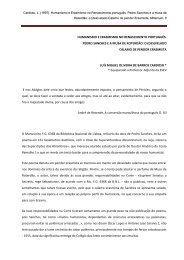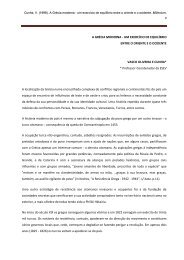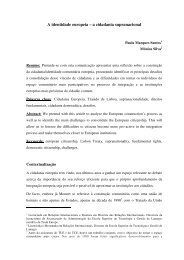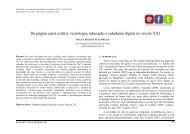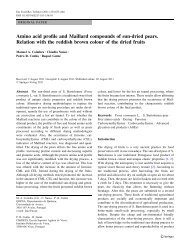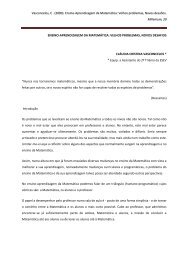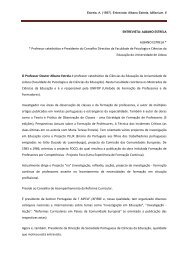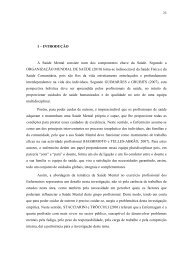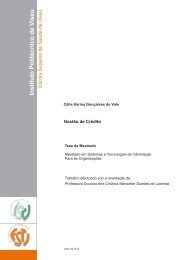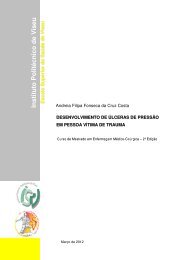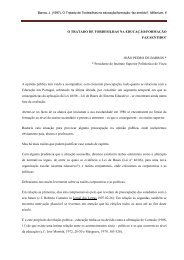Rationales for Internationalisation.pdf
Rationales for Internationalisation.pdf
Rationales for Internationalisation.pdf
You also want an ePaper? Increase the reach of your titles
YUMPU automatically turns print PDFs into web optimized ePapers that Google loves.
Wit, H. (1998). <strong>Rationales</strong> <strong>for</strong> <strong>Internationalisation</strong> of Higher Education. Millenium, 11For international education, is true what Mark Twain said about travel, namely "that it is fatal toprejudice, bigotry, and narrow mindedness", and what Paul Theroux wrote: "Being mistaken is theessence of the travellers tale." But where most studies indicate that students studying abroad did notchange much in their attitude on their host country, there are clear indications that overcomingmistakes and prejudices of the own culture are as much important effects as overcoming those of othercultures.I always remember clearly from my own time as a student in Lima, Peru, that Peruvian students fromlower income groups who had studied with a scholarship in the <strong>for</strong>mer Soviet Union were said to havecome back as convinced capitalists, and students from rich families who had studied in the United Statesas the leaders of the radical left. So, they were impacted on a quite opposite way than intended by theirhost countries, and returned with a different impact than their sponsors -respectively the at that timeleft wing military regime, and the conservative oligarchy, had hoped <strong>for</strong>.(III)From these examples, I hope it will be clear that the political rationale not always - and I would even beinclined to say, seldom- ends with the results intended by the donor and/or the receiver.I have given so much attention to the political rationale, because it has been so dominant in post secondworld war initiatives to internationalise higher education. But after the end of the cold war, theemphasis has changed from the political to the economic.The economic rationale was and still is the driving <strong>for</strong>ce behind the European programmes <strong>for</strong>cooperation and exchange in research, technology and education such as the Research andDevelopment Programmes, COMETT and ERASMUS, although always -and today even more than tenyears ago- combined with the political rationale to stimulate the development of a European citizenship.This change from the political to the economic, is clearly demonstrated in a recent study on "NationalPolicies <strong>for</strong> the <strong>Internationalisation</strong> of Higher Education in Europe", by the Swedish National Agency <strong>for</strong>Higher Education (1997). All the reports on the Northern European countries: the Scandinaviancountries, Austria, Germany, the U.K. and The Netherlands, but also on Central and Eastern Europe,indicate a tendency from the educational, cultural and political to the economic as dominant rationale<strong>for</strong> internationalisation. The only exception was from Southern Europe, Greece, an indication that inthat region higher education is still more driven by traditional rationales: academic, cultural andpolitical.



